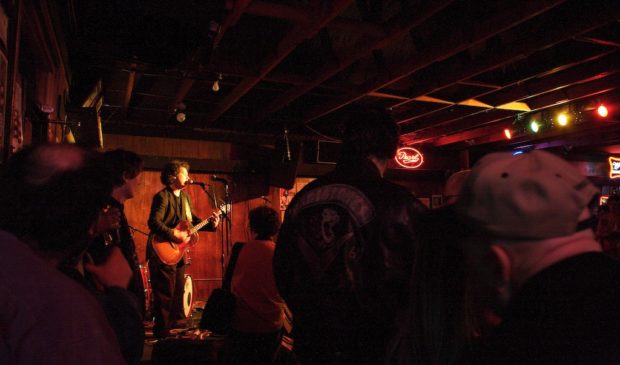Nonprofits pitching in on cultural land trust proposal
Friday, January 12, 2018 by
Chad Swiatecki A group of Austin nonprofit organizations are working together on an effort that would see the city of Austin create a cultural land trust to buy and preserve properties around the city for use as theaters, studios, live music venues and other attractions.
The loose coalition thus far includes Austin Creative Alliance, Preservation Austin, Austin Community Foundation and Six Square, and representatives from those organizations hope to put together a resolution for the second City Council meeting in February to start the process of creating the publicly organized group. It is hoped that the trust would be able to gradually raise money through public and private sources to acquire land that could – in one of many scenarios – be developed with some portion reserved for a mix of affordable housing and creative space.
Questions including how the body would be governed, where its initial funding would come from and what its guiding principles would be are still to be determined.
The expected Council resolution would start the process of research and input into possible structures and funding options including those used by existing creative land trusts in Denver, Pittsburgh and Anchorage, Alaska, among others.
In a presentation to the Austin Music Commission on Monday, John Riedie, CEO of Austin Creative Alliance, discussed the scope and importance of the land trust effort, including how it could help preserve long-standing live music venues that are seeing double-digit rent increases in many parts of the city.
Riedie said input the ACA gathered in recent years found that 53 percent of the 230 creative spaces it surveyed planned to not renew their current leases when they expire.
“That’s literally over 100 spaces that could be gone in the next five years,” he said. “When those people do look at what their options are we realized that the real estate market is greatly outpacing any organization. Whether non- or for-profit, whether successful or just barely hanging on, they cannot increase revenue or raise capital fast enough to meet the increase in the market.”
High-profile theater spaces such as the Off Center and Salvage Vanguard have been displaced from their longtime locations in the past two years and beloved music venues such as Saxon Pub and Hole in the Wall were saved from displacement by last-minute interventions from wealthy patrons.
Riedie said a new front for the displacement problem is emerging with the move of Austin’s African-American churchgoing population out of the city, which is causing the closure of and sometimes demolition of historic churches. One possible solution the proposed land trust could offer is to purchase those structures and find ways to convert them into creative spaces, community centers or other assets to the neighborhood.
Possible funding sources discussed on Monday include private dollars, preservation money that will become available soon from Austin’s fast-growing Hotel Occupancy Tax, and the sale of or borrowing made against tax credits that historic sites would qualify for.
The proposal is expected to be discussed at a joint meeting of the Music Commission and the Arts Commission that is scheduled for Jan. 29, with each group likely to consider a recommendation at their respective February meetings ahead of any Council action.
Members of the Music Commission expressed support for the concept Monday and asked only minor procedural questions. Riedie said the eventual governing body – likely a board of trustees made up of rotating members appointed by the city and elected by the community – would be in charge of determining how the entity would operate.
Kate Singleton, executive director of Preservation Austin, said Austin has fallen behind other major cities because of its lack of a land bank or trust to preserve cultural assets as real estate prices climb.
“Where other cities like Philadelphia and Pittsburgh have taken this on they’ve done a better job in protecting their arts community, and we need to get on the ball,” she said. “We’re to a point that there are opportunities that could be lost soon as prices increase, so we need an entity that can purchase property, and we’re ready to be included in that conversation.”
Photo by Charlie Llewellin made available through a Creative Commons license.
The Austin Monitor’s work is made possible by donations from the community. Though our reporting covers donors from time to time, we are careful to keep business and editorial efforts separate while maintaining transparency. A complete list of donors is available here, and our code of ethics is explained here.
You're a community leader
And we’re honored you look to us for serious, in-depth news. You know a strong community needs local and dedicated watchdog reporting. We’re here for you and that won’t change. Now will you take the powerful next step and support our nonprofit news organization?







